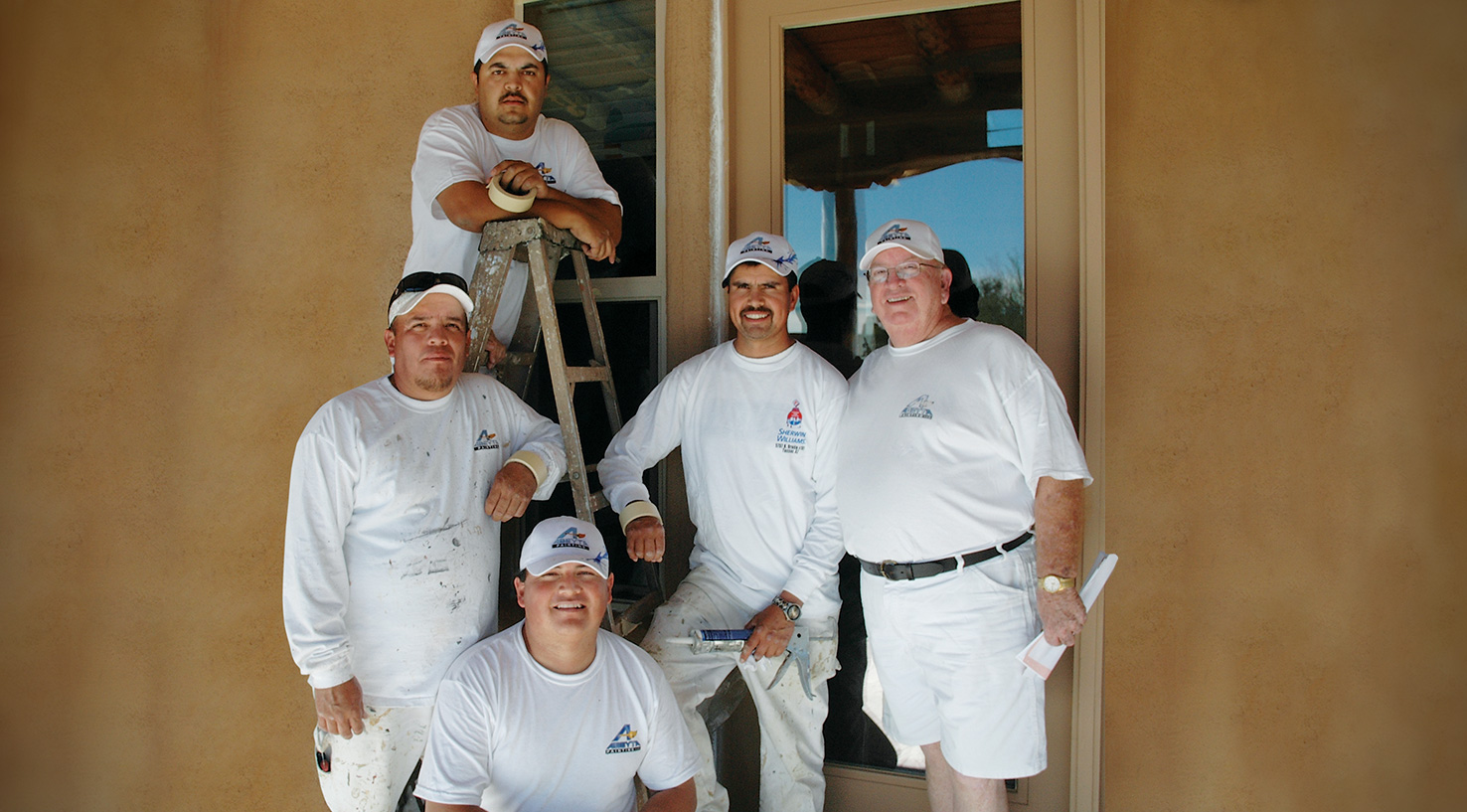“The West Wing” was a popular television series that ran through 2006. One episode tells the story of a guy who walks down the street and falls in a hole. The walls are so steep he can’t get out. A doctor passes by and the guy shouts for help.
“Hey doc, can you help me out?” The doctor writes a prescription, tosses it down the hole and moves on. A priest comes along and again the guy shouts for help.
“Father, can you help me out?” The priest scribbles a prayer, tosses it down the hole and moves on. Then a friend walks by and the guy shouts for help.
“Hey Joe, it’s me can you help me out?” And the friend jumps in the hole. The guy says, “Are you stupid? Now we’re both down here.” The friend says, “Yeah, but I’ve been down here before and I know the way out.”
Painting contractors who made it through the 2008 economic downturn will tell you that it presented many of the same challenges and difficulties painters are facing today. What follows are the collective insights from contractors about how they managed the financial crisis of more than a decade ago. They’ve been there before and can help you to “know the way out.”
“We were here in the good times, and we’ll make it through the bad.” –Dan Foster, Foster’s Painting & Wallcovering
James Brown, J.B. Painting Inc., Deerfield Park, FL
“You just have to work harder and continue regular communications with your customers. In tough times, customers want to know they can trust you and that you are licensed and insured – especially Workers’ Compensation.” Unemployment created new competition from start-ups during the 2008 recession. “Many people fall victim to the low-bid temptation during downturns. It’s important to keep stressing to customers of the quality, experience and expertise you can deliver for their peace of mind.” (from the Spring 2009 PPC issue)
Peter Gisondi, Jr., Peter Gisondi & Co., New York, NY
“The economics of the painting industry have drastically changed since my father founded the company in 1952. What worked yesterday may not work today. You must try different and unique ways to improve your sales and marketing. Your survival depends on it.” (Fall 2010 PPC)
Garold May, L.H. Land Painting Co., Dallas, TX
“We adapt to a difficult market by carefully controlling our costs and looking for niche painting work that requires a high skill set and imaginative performance methods. This creates margin opportunities.” (Winter 2010 PPC)
Carlos Cubas, C&C Painting, Tampa, FL
“A down market increases competition and depresses profit margins. Some competitors bid jobs so low that they are unable to even finish the work. We focus on preparing exact estimates and realistic delivery schedules. I remind my guys that if we don’t complete jobs on time, it costs everyone money.” (Summer 2011 PPC)
Dave Rohde, Rohde Painting, Onalaska, WI
“We try to educate customers. Home improvements are usually economy driven, and everyone wants to pay less. As a full-service company, we need to find the right customers who are willing to pay for that service. We see so many inferior jobs, with a lot of corners being cut because people went with the cheapest price. Lately, we’ve received numerous calls to come in and fix paint failures and poor workmanship.” (Spring 2014 PPC)
Paul Gallo, Magic Brush Painting, Rutland, VT
“Too many contractors think the sun will always shine and haven’t considered the possibility of rainy days.” Taking a prudent approach combined with foresight has sustained his operation through tough times. “We saw that there was a major slowdown in the housing market and acted accordingly by aligning with institutional accounts with strong cash flow and financial stability. We also saw that baby boomers were downsizing, but still wanted new homes, condos or level care facilities. Currently, we are painting 150 new housing units annually to serve that demographic.” (Spring 2009 PPC)
Dan Foster, Foster’s Painting & Wallcovering, Phoenix, AZ
Phoenix has always been known for its boom-and-bust cycles, but the five years between 2005 and 2010 were some of the toughest, Foster said. He reduced staffing and plowed profits back into the company to keep the firm solvent during that down cycle. “We were here in the good times, and we’ll make it through the bad,” he said. (Summer 2010 PPC)




